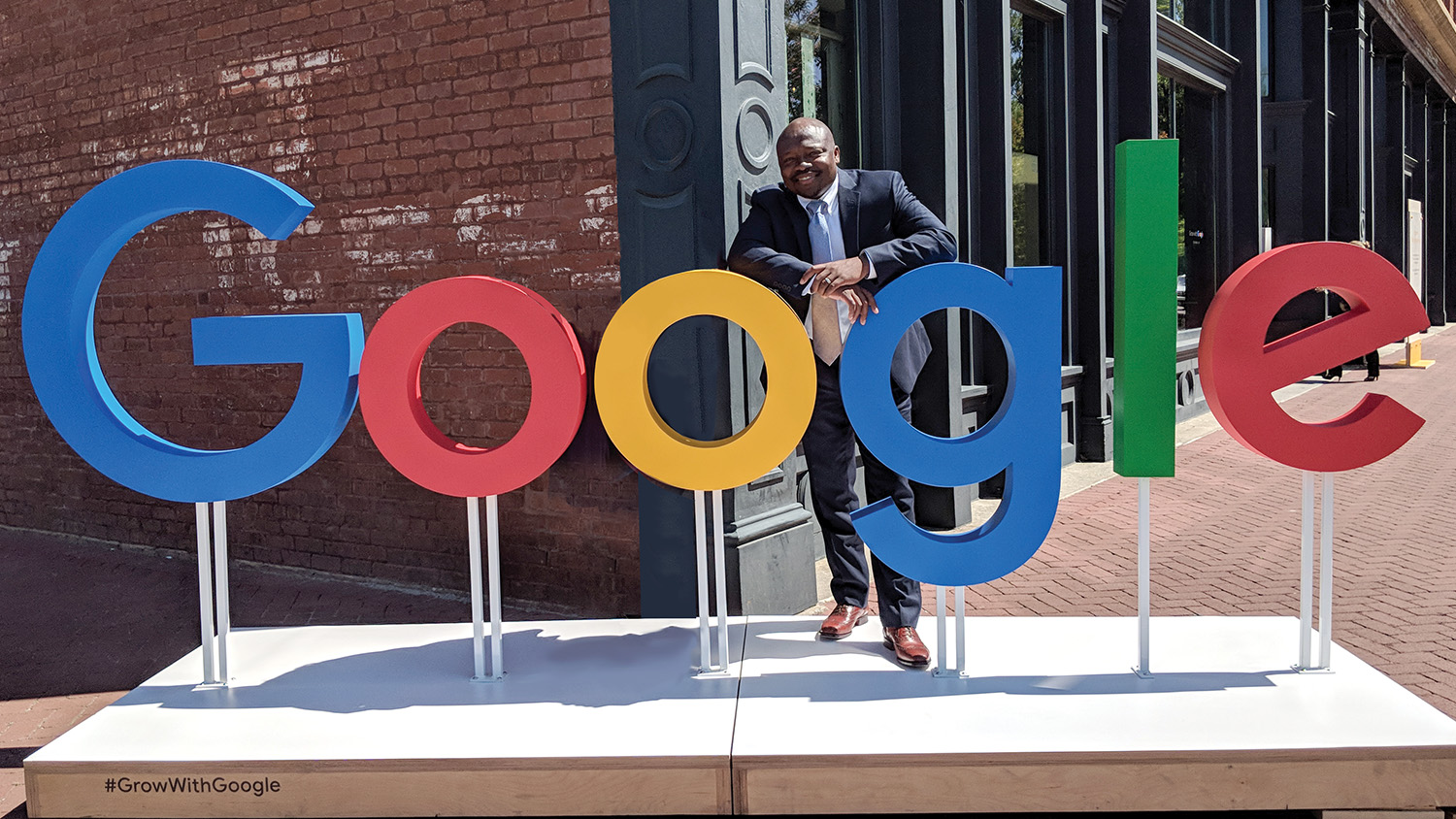
Read the original article here.
Wilson White ’03, engineer-turned-attorney-turned-high-tech-soothsayer, believes that, yes, oil and water can mix.
White, vice president of government affairs and public policy at Google, earned a computer engineering degree at NC State and a law degree from UNC-Chapel Hill. “In both fields,” he says, “you have problem solvers. I am a problem solver.” Whether advising executives at Google’s complex in Mountain View, Calif., counseling Google development teams or testifying before Congress, White says it helps to speak both tech and law.
During his senior year at NC State, where he was a Park Scholar, White worked as a software developer at IBM. A mentor there who was both an engineer and attorney opened White’s eyes to merging the disciplines. After law school, he worked as a patent litigator and then was offered a job at Google as a patent litigation counsel.
Today, White provides regulatory and policy guidance about everything from Google Play to Fitbit. He recently advised Congress on issues surrounding smart home devices. And he’s proud of helping develop Google’s principles for artificial intelligence.
It’s White’s job to think about the upsides and downsides of emerging technologies — such as artificial, virtual and mixed realities, which have implications for health care, product design, manufacturing and education. “Let’s understand the utility and the trouble spots,” he says. “Technology moves faster than lawmaking. Let’s make sure that rules today are relevant in the future.”
“Let’s make sure that rules today are relevant in the future.”
–Wilson White ’03
He considers issues like parental concerns about kids and mobile phones, as well as privacy concerns surrounding Google Maps and travelers’ data. But he takes a global view of mobile technology. “Technology is the biggest driver of job creation, education, raising the standard of living,” he says. “I want to make sure it remains accessible to as many people as possible.”
What keeps White up at night? “I worry how polarized we are, how the role of technology may be playing into this dynamic of polarization,” he says. “We need to acknowledge that.”